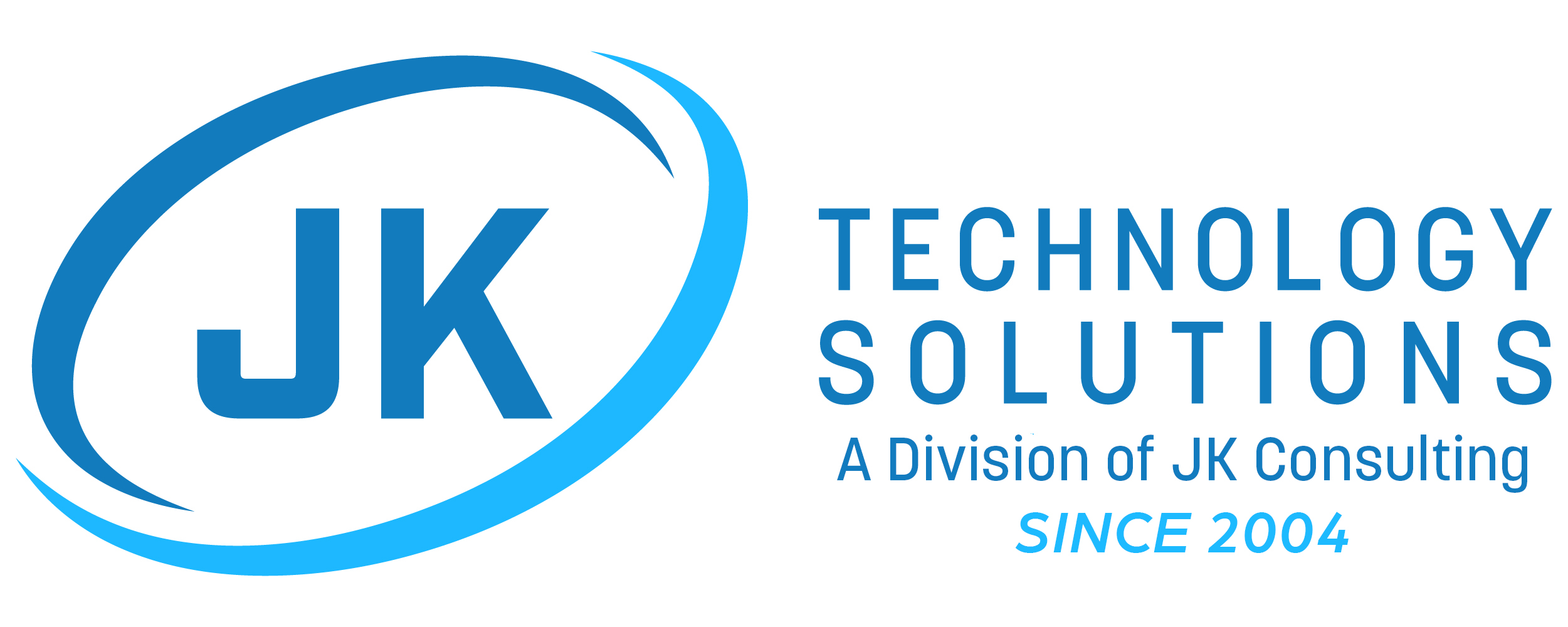Must-Have New Technologies and the Importance of Maintaining Your IT Infrastructure
As we approach 2025, businesses are facing a rapidly changing technological landscape. Emerging innovations are reshaping industries, enhancing operations, and offering new ways to engage with customers. However, the success of adopting these advanced technologies depends on one critical factor: maintaining and optimizing your IT infrastructure. In this blog post, we will explore the key business technology trends for 2025 and discuss why improving and maintaining your IT network and technology equipment is more important than ever.
- Artificial Intelligence (AI) and Machine Learning (ML)
The Trend: AI and machine learning are becoming essential tools for businesses seeking to automate processes, enhance decision-making, and improve customer experiences. By 2025, AI will be even more ingrained in business functions, from predictive analytics to customer service automation. Machine learning will enable organizations to identify trends and patterns, facilitating better, faster business decisions.
Must-Have Tech: AI-Powered Automation: Businesses will increasingly rely on AI-driven tools to automate repetitive tasks, from customer service chatbots to inventory management systems.
Data-Driven Decision Tools: Advanced AI tools will help organizations predict market trends, optimize operations, and personalize customer interactions in real time.
Why It Matters: AI and ML technologies require robust data processing capabilities. To implement and scale these tools, businesses must ensure their networks can handle large volumes of data securely and efficiently. Regular maintenance of servers, storage, and cloud systems is essential for leveraging the full potential of AI tools.
2. 5G and Edge Computing
The Trend: The roll-out of 5G networks will enable faster, more reliable connectivity, while edge computing will push data processing closer to the source. These technologies will work hand-in-hand to support real-time data processing, IoT devices, and mobile applications, which is especially valuable for industries like manufacturing, logistics, and healthcare.
Must-Have Tech: 5G-Ready Infrastructure: Businesses need 5G-enabled equipment, such as routers, mobile devices, and IoT sensors, to take advantage of faster, low-latency connections.
Edge Computing Solutions: To process data locally rather than relying on centralized cloud servers, businesses will invest in edge computing devices and solutions.
Why It Matters: Implementing 5G and edge computing requires upgrading your IT network to handle faster speeds and reduced latency. Your network infrastructure, including routers, switches, and firewalls, must be maintained and optimized to ensure smooth, high-speed data flow. Keeping these components updated is essential to avoid bottlenecks and security vulnerabilities.
- Quantum Computing
The Trend: While quantum computing is still in its early stages, it holds the potential to revolutionize industries by solving problems that traditional computers cannot. In 2025, businesses in sectors like healthcare, finance, and logistics may begin to explore quantum computing to address complex challenges, such as drug discovery or optimization problems.
Have Tech: Quantum Computing-as-a-Service: Cloud providers like IBM and Microsoft are already offering quantum computing capabilities, allowing businesses to experiment with quantum algorithms.
Quantum-Safe Security: As quantum computing advances, businesses will need to adopt new encryption technologies that are resistant to quantum-based attacks.
Why It Matters: As businesses begin to experiment with quantum computing, maintaining a secure and high-performance IT infrastructure is critical. Upgrading your IT security systems, ensuring that encryption protocols are quantum-safe, and ensuring sufficient computing power to integrate with quantum computing services will be important for businesses exploring this cutting-edge technology.
- Extended Reality (XR)
The Trend: Extended Reality (XR), encompassing virtual reality (VR), augmented reality (AR), and mixed reality (MR), will become more integrated into business operations. These technologies will transform industries like retail, training, real estate, and healthcare by offering immersive experiences for customers, employees, and clients.
Must-Have Tech: VR/AR Collaboration Tools: Platforms like Microsoft Mesh and Spatial are making it possible for remote teams to collaborate in virtual environments, a trend that will only grow as hybrid work becomes the norm.
AR Customer Engagement: Retailers will use AR apps to allow customers to visualize products in their homes before making a purchase.
Why It Matters: XR technologies demand powerful IT networks to deliver smooth and immersive experiences. A fast, reliable connection is crucial for applications like VR meetings or AR product try-ons. Investing in high-performance servers, VR/AR devices, and an optimized network infrastructure will ensure that businesses can offer seamless experiences to their customers and employees.
- Blockchain and Decentralized Finance (DeFi)
The Trend: Blockchain technology, often associated with cryptocurrencies, will expand beyond finance. Its use for securing transactions, ensuring transparency, and automating contracts will become critical in industries like supply chain, healthcare, and real estate. Similarly, decentralized finance (DeFi) will provide businesses with ways to manage financial transactions without intermediaries.
Must-Have Tech: Blockchain Platforms: To implement secure, decentralized systems, businesses will need blockchain platforms that enable transparent transactions and smart contracts.
DeFi Integration: Companies in finance, logistics, and other sectors will explore decentralized finance platforms to streamline financial operations.
Why It Matters: Blockchain systems are built on distributed ledgers, which require high-performance computing power and secure, decentralized networks. Businesses will need to maintain strong, secure IT infrastructures capable of supporting blockchain applications while protecting sensitive data and ensuring compliance with regulations.
- Cybersecurity Advancements
The Trend: As businesses become increasingly digital, the threat landscape is also evolving. Cyberattacks, from ransomware to data breaches, are becoming more sophisticated. In response, businesses will need to adopt advanced cybersecurity measures to protect their data, intellectual property, and customer trust.
Must-Have Tech: AI-Powered Threat Detection: AI tools will help identify and mitigate cyber threats in real-time, providing automated responses to security breaches.
Zero Trust Security: A security framework where no one, inside or outside the organization, is trusted by default, and access is continually verified.
Why It Matters: Maintaining a strong, up-to-date IT infrastructure is critical for defending against cyber threats. Regularly upgrading network security hardware, such as firewalls, intrusion detection systems, and anti-virus software, is essential for staying ahead of hackers. Keeping software and systems patched will help mitigate vulnerabilities and reduce the risk of a breach.
- The Smart Workplace
The Trend: The workplace is becoming increasingly “smart” with the integration of connected devices, automation, and collaboration tools. As hybrid work environments become more common, businesses will need technology to facilitate communication, collaboration, and productivity across distributed teams.
Must-Have Tech: Cloud Collaboration Tools: Software like Microsoft Teams, Slack, and Zoom will continue to be crucial for seamless communication and project management.
Smart Office Devices: IoT-enabled devices for lighting, heating, security, and room scheduling will make office environments more efficient and comfortable.
Why It Matters: A smart workplace relies on a strong, reliable IT infrastructure that supports cloud platforms, IoT devices, and remote work tools. Businesses need to ensure that their network bandwidth can support video conferencing, file sharing, and real-time collaboration without disruptions.
Why IT Infrastructure Maintenance Is Crucial
To capitalize on the technological innovations of 2025, businesses must ensure their IT infrastructure is not just cutting-edge but also reliable and secure. Regular maintenance of your IT network and technology equipment is critical for several reasons:
- Performance: Well-maintained equipment performs better, enabling smooth operations and reducing downtime.
- Security: Keeping your hardware and software up-to-date is essential for protecting against emerging cyber threats.
- Scalability: As your business grows, your IT infrastructure needs to evolve. Regular updates and optimizations ensure your network can handle increased demand and new technologies.
- Cost Savings: Proactive maintenance prevents costly repairs and system failures, saving your business money in the long run.
Conclusion
The technology landscape for businesses in 2025 is evolving rapidly, with AI, 5G, quantum computing, XR, and blockchain paving the way for transformative changes. However, the success of adopting these technologies depends on the strength and security of your IT infrastructure. Maintaining and upgrading your network and equipment is not just a best practice—it’s essential for keeping your business competitive, secure, and prepared for the future. Now is the time to invest in your IT foundation, ensuring it can support the technologies of tomorrow.
Related Links;
- Artificial Intelligence vs Machine Learning: What’s the difference? –Clara Piloto Director of Global Programs, Director of Digital Plus Programs, MIT Professional Education, Massachusetts Institute of Technology
- Quantum computing – From Wikipedia, the free encyclopedia
-
What Is Extended Reality Technology? – Bernard Marr, Forbes Magazine
-
What Is Decentralized Finance (DeFi) and How Does It Work? – By Rakesh SharmaUpdated October 25, 2024, Reviewed by Amilcar Chavarria, Reviewed by Fact checked by Jiwon Ma


